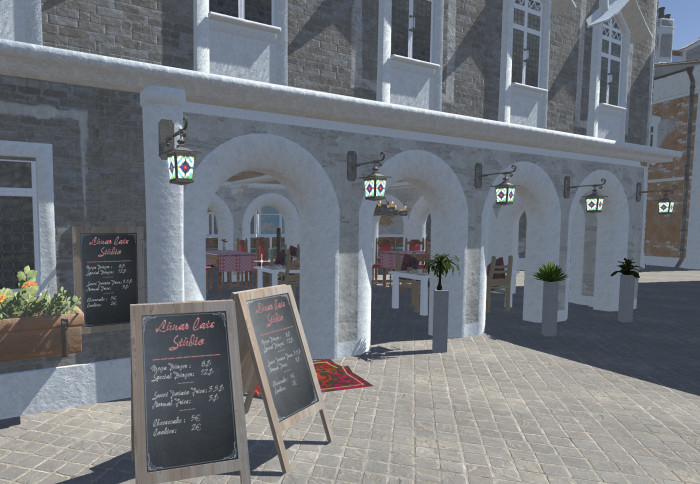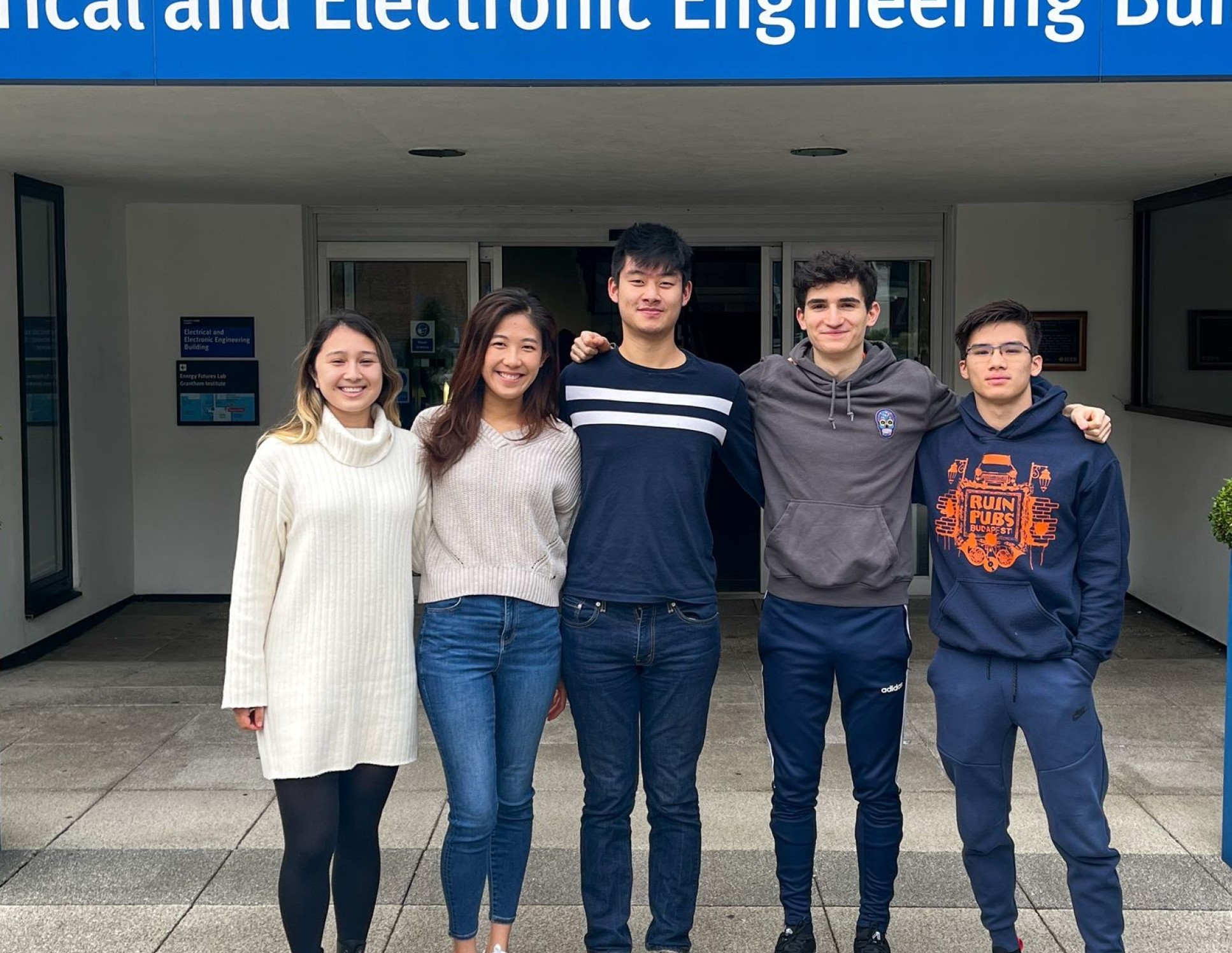Undergraduate project transports you to a 'virtual Venice'

A screenshot from the game. "This project was so enjoyable it opened my eyes to the possibility of working in the gaming industry."
A group of EEE undergraduates has created an immersive language learning game which lets users explore the city — without getting on a plane.
The team of students — Alexander Scott, Sebastiano Zane, Gabrielle Rubin, George Chen, and Christy Wong — collaborated with IBM to create an innovative 'adventure-based' educational game for their industrial-client-focused project – which forms a substantial part of our MEng third year programme.
“The level of commitment, inspiration, and technical ability that the students have poured into this project is nothing short of stellar.” John McNamara IBM UK University Programs Lead and project mentor
As a diverse, multinational, and multilingual group, they understand the benefits of being fully immersed in a country when learning the language, but are also very aware of the negative environmental impact of travelling.
This became the focal point of their project and led them to create a playful AI-based learning platform that lets the language student travel to into a realistic virtual environment. Their game,Venice of Secrets, teaches Italian in a fun and easy way by simulating a visit to the city.
They were encouraged by their industrial mentor, John McNamara, to submit their project to IBM's Call for Code Challenge, which asks its participants to find innovative solutions to major global environmental challenges using artificial intelligence.

Meet the students and find out more..
I reached out to the group to discuss the development of their project, and how Imperial’s EEE department is preparing them to work as engineers after graduation.
What was the inspiration behind your project?
Sebastiano: We are a group of friends with a shared interest in engineering and / or computer sciences. Coming from different countries – the UK, Italy, Hong Kong, Trinidad and Tobago – all of us speak at least two or more languages, so we know about the importance of being able to communicate properly in different cultures. Venice, which happens to be my hometown, is very much at risk from climate change. At the same time, it is such an iconic travel destination. Every year Venice receives more than 20 million visitors whose travels leave a large carbon footprint in their wake. A part of those are language students. So if we connect learning, tourism, and environmental issues, we can help mitigate some of that damage.
What areas of the EEE / EIE course content specifically helped you with the development of your project?
George: Once we had settled on the idea, we knew that we would have to familiarise ourselves with new tools, concepts, and software. Although we hadn’t used the Unity Engine before, or programmed in C#, the programming modules taught in the first three years of university proved invaluable. Imperial’s Electronic and Information Engineering degree develops a highly transferable skill set, such that when faced with a new programming language, we were able to apply our knowledge of Object Oriented Software Engineering in Python.
Alex: Many of the projects undertaken within the first three years of university required research outside of the course content. This aided us in absorbing information quickly, as we have become comfortable with learning new concepts.
Have you found that working on the project developed the skills and knowledge needed to become better-rounded engineers?
Sebastiano: Engineers need to be both able to produce high quality work that meets requirements, as well as work well in a team and communicate effectively to achieve a common goal. This project gave me the opportunity to gain knowledge in a more obscure facet of the engineering development industry while at the same time allowing me to work on my team working skills. I believe both of these have helped me become more prepared for work as an engineer.
Christy: This opportunity has developed the creative mindset that an engineer should have. Without any framework or strict requirements, it was really challenging yet enjoyable to solve an issue with open solutions.
Has your work on the project had any impact on your future plans as an engineer?
Gabrielle: For my final year project this year I have decided to create yet another virtual environment. However, this time going slightly further using a VR headset to fully immerse the user. I feel that Venice of Secrets really prepared me well in using Unity and also developed my skills of getting around software issues.
Alex: I was always a person that enjoyed playing video games but never imagined myself creating one. Working on this project was so enjoyable it opened my eyes to the possibility of working within the gaming industry.
What are your favourite things about studying at Imperial?
Christy: I enjoyed the opportunities of co-operating with different people within the structure of our EEE course. With various projects since Year 1, these experiences have allowed me to learn different cultures around the globe. Other than this, I appreciate the college’s work in encouraging gender diversity in engineering, providing a good place for women to work and study.
George: Imperial’s greatest strength lies in the way in which it prepares its students both for the industrial world but also for the world of research. The path you wish to take can easily be shaped by your own module choices and the way in which you engage with the taught material.
John McNamara was full of praise for our students' work, and is looking forward to future collaborations. "The level of commitment, inspiration, and technical ability that the students have poured into this project is nothing short of stellar."
"This represents a level of excellence and innovation that is the standard for Imperial College. Further it enables a level of collaboration between academia and industry, that helps each of us to progress from looking at the worlds challenges and asking 'why?' to conceive solutions and ask 'why not?"
Article text (excluding photos or graphics) © Imperial College London.
Photos and graphics subject to third party copyright used with permission or © Imperial College London.
Reporter
Ella Greenhalgh
Department of Electrical and Electronic Engineering